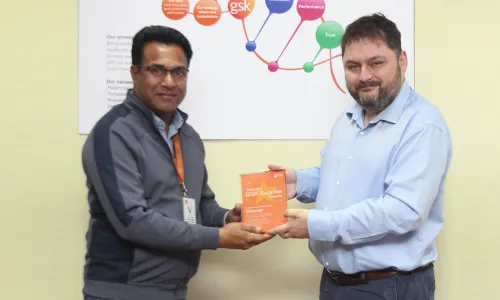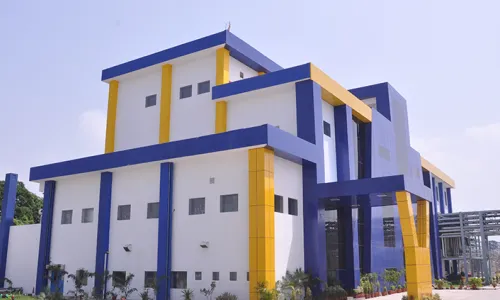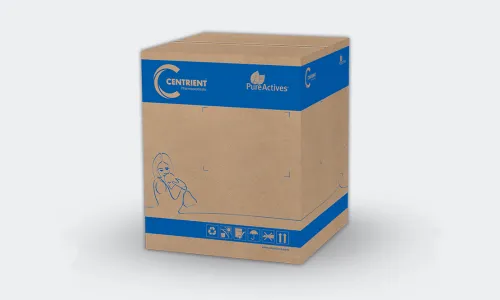Protecting our environment
Centrient is responding to climate change in a concerted and structured manner. Our efforts to offset our environmental impact are included in Centrient Pharmaceuticals’ Sustainability Roadmap 2020 (which covers the 2008-2020 period). We are now in the process of defining our new environmental parameters and targets for 2025.
In 2018 and 2019, we continued to work towards our sustainability targets through a series of projects and initiatives. These focused on four key areas: 1) energy efficiency and reducing harmful emissions, 2) water efficiency and smarter water usage, 3) antimicrobial activity testing and control in our waste streams, and 4) product stewardship.
The relevant 'priority topics’ for the Protecting our Environment chapter are:

We aim to reduce water consumption and improve our impact on the environment.

We strive to improve our impact on the planet by becoming more energy- and carbon-efficient.

We are dedicated to innovative technology and to the pursuit of sustainable growth.
Water and environment
| 2019 | Target 2020 | |
|---|---|---|
| Water efficiency improvement | 23% | 33% |
Having fallen by 1% in 2018, our water efficiency performance decreased by a further 4% in 2019, mainly due to lower-than-predicted overall production volumes. We have since set up a task force to explore new ways to conserve and save water use across our operations. A water balance assessment is also planned for each of our sites to identify further opportunities for recycling and reuse.
We remain committed to reducing our chemical oxygen demand (COD) emissions. In 2019, we exceeded our 2020 objective of a 60% COD efficiency improvement relative to 2010 levels target by 3%. We also measure the quality of our wastewater in terms of COD: since 2010, our COD figure has fallen by 63% globally, and we exceeded our emissions target by 3% in 2019.
Climate and energy
| 2019 | Target 2020 | |
|---|---|---|
| Energy efficiency improvement | 42% | 43% |
| CO2 efficiency improvement | 43% | 49% |
Improving our energy and carbon efficiency remained a key focus in 2018 and 2019. Our overall energy efficiency improved by 1% year-on-year in 2019. This was due to a reduction in fuel consumption, which resulted from more efficient handling of the biomass-drying process at our Yushu facility. Efficiency remained stable across our other production sites.
We also continued striving to reduce our direct and indirect air-bound CO2 emission volumes relative to production. The amount of CO2 we emit as an organisation is directly linked to the energy we consume. Accordingly, Centrient’s overall CO2 efficiency levels improved by 2% in 2019. By end-2020, we aim to realise a 49% CO2 efficiency improvement relative to the level achieved in 2008.
Science and innovation
Centrient’s scientists lead the way in technological innovation of pharmaceutical and specialised chemical production. By end-2019, we held more than 400 individual patents in nearly 80 patent families.
We also strengthened our R&D operation with the launch of the Umaang pilot plant in India. This state-of-the-art facility will help scale up new products, accelerate process improvement and shorten product development. The plant is accompanied by our new Technology Development Lab in Yushu, China, which opened in 2019.
Continuous improvement
In 2018 and 2019, we continued to drive workforce efficiency through a combination of continuous improvement (CI) methodologies, automation and digitalisation. In 2019, we executed two key CI projects related to sustainability. The first was a week-long ‘Kaizen’ CI exercise to improve and streamline waste handling at Centrient’s Delft plant in the Netherlands. We also optimised production planning at our China Zibo site, with a focus on saving energy.
We continue to sharpen the capabilities of our teams by training our CI teams and site leadership on lean manufacturing. We also perform annual on-site maturity assessments, which include dimensions such as 5S, lean leadership, visual management, teamwork, maintaining machines and addressing bottlenecks.




